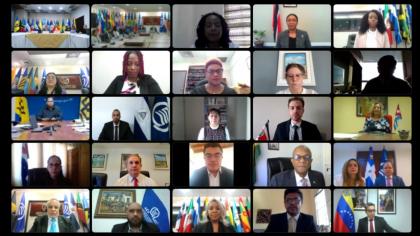L'Association des Etats de la Caraïbe est une organisation de consultation, de coopération et d'action concertée dans le commerce, le transport, le tourisme durable et les catastrophes naturelles dans la Grande Caraïbe et est composé de 25 pays membres et 7 pays membres associés. Les Etats Membres sont Antigua-et-Barbuda, les Bahamas, la Barbade, Belize, Colombie, Costa Rica, Cuba, Dominique, République dominicaine, El Salvador, Grenade, Guatemala, Guyana, Haïti, Honduras, Mexique, Jamaïque, Nicaragua, Panama, Saint-Kitts-Et-Nevis, Sainte-Lucie, Saint-Vincent-et-les Grenadines, Suriname, Trinité-et-Tobago et le Venezuela. Ses membres associés sont Aruba, Curaçao, (France au titre de la Guyane française, Saint-Barthélemy et Saint-Martin), Guadeloupe, (Les Pays-Bas au nom de Bonaire, Saba et Saint-Eustache), Martinique, Sint Maarten, Îles Turques et Caïques.
A propos de l'AEC




